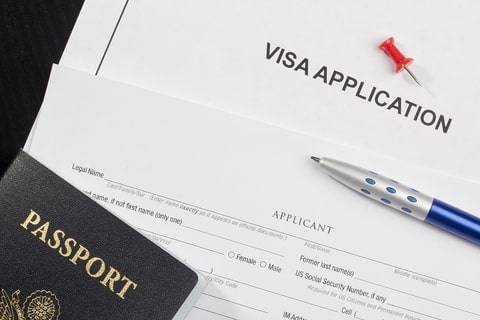
Exploring career opportunities in Italy presents a unique and enriching experience, especially for American job seekers aiming to dive into a new cultural landscape. Italy’s job market offers various positions ranging from hospitality roles, such as Welcome Desk Agents in cosmopolitan cities like Rome, to teaching English as a foreign language.
TEFL courses and job guidance services assist in your transition. Even the U.S. Embassy and consulates across Italy provide employment options within the diplomatic sphere, contributing to a vibrant international community where your skills and expertise can significantly impact.
Securing a position in Italy can be both exciting and challenging. To successfully navigate the Italian job market, familiarity with local business etiquette and a grasp of the Italian language can be incredibly beneficial, no matter the level of fluency. Italy’s cultural diversity and historical richness are matched by the opportunities to grow professionally within industries like sales, marketing, and international relations. For example, the average annual salary of a teacher in Italy is around 31,000 Euros. A marketing manager may earn up to 45,000 Euros, pointing to the economic viability of taking your career abroad.
It’s inspirational to hear how expatriates have found their path in Italy—overcoming language barriers, embracing the local lifestyle, and advancing their careers. The Italian job landscape is not just about work; it’s an opportunity for personal growth and cultural immersion. With the right approach and resources, such as participating in internship programs offered by global companies like Amplifon, you can enrich your career and personal life, making your Italian job experience a fulfilling and unforgettable journey.

Obtaining the right documentation is essential if you’re an American looking to work in Italy. The first step is securing a work visa, which is your key to legally entering Italy for employment.
Visa Types:
A crucial reminder: your work visa is just an entry document. Upon arrival, you must apply for a residence permit (permesso di soggiorno) to legally stay and work.
Table: Document Checklist
Document Importance Passport Required for entry Visa Application Must be accurate Job Offer Proof of employment Accommodation Proof Proof of residence Financial Stability Show self-sufficiency
Remember, your work permit is often tied to your job, so maintaining your employment status is key. Italy’s job market has unique needs, opening doors for specialized skills in shortage industries.
Real-life example: Teaching English has been a route many Americans have found successful in integrating into the Italian job market.
By staying diligent with these requirements, you can pave the way to an enriching career experience in one of the world’s most culturally rich countries. With persistence and the right paperwork, your Italian job dream is within reach.

Your journey to employment in Italy requires an understanding of the local landscape, cultural nuances, and legal steps to secure work as an American expat.
Italy presents a variety of sectors eager to welcome American professionals. The event planning industry shines bright, with your expertise in coordinating international weddings and events being highly sought after. Many Americans are choosing Italy as their destination for significant events, and as a result, your insight into optimal venues, knowledge of local regulations, and connections with service providers can set you apart.
The manufacturing sector, robust and diverse, offers opportunities, especially in regions like Lombardy, Emilia-Romagna, and Piedmont. Italy’s storied fashion and luxury goods industries are particularly keen on professionals who bring fresh perspectives and international market understanding. Global companies based in Italy often prize American professionals for their insight into the American market.
It’s important to note that competition in the job market can be strong. As of May 2023, the unemployment rate stood at 9.2%, indicating the need for a strategic approach to job hunting. Networking, fluency in Italian, and a solid understanding of Italian business etiquette are key tools for success.
foreign workers in Italy, such as yourself, need to navigate the work permit and visa process. The EU Blue Card provides a pathway for highly skilled professionals, granting a 2-year stay with the possibility of renewal. To obtain this, you’ll require the necessary qualifications and a job offer from an Italian company.
Success in the Italian job market is indeed possible. Take inspiration from those who have flourished by bridging cultures, learning the language, and navigating the legal requirements with due diligence. With the right approach, you too can join the ranks of successful American expats working in Italy.

Finding your dream job in Italy requires preparation and understanding of the local job market. As an American, start by identifying sectors where your skillset is in demand. For instance, Event coordination is a niche where language and cultural knowledge are assets, particularly for events catering to an international clientele.
Assess industries thriving in Italy, such as healthcare, where there’s a high demand for professionals. Your qualifications may need to be recognized in Italy, so investigate the certification conversion process early on.
Secure a job prior to relocating, ensuring your employer sponsors your work visa. The process for self employment visa typically involves:
Engage with local expat communities and professional networks. Many Americans find opportunities through contacts made at events or online forums.
Align your CV with Italian expectations, highlighting experience and skills that differentiate you. Be concise and focus on relevancy to the Italian job market.
A grasp of Italian can be a game-changer, enhancing your employability and easing your integration into the local culture.
By thoroughly preparing and understanding what Italy’s job market offers, your journey to landing a fulfilling role becomes clearer. Remember, research, legal preparation, networking, a tailored resume, and language skills are the cornerstone to your success in Italy.

In Italy, proficiency in English can be a golden ticket for a broad range of job opportunities, especially for Americans.
Your ability to speak English fluently in Italy can open doors in sectors like tourism, education, and international business. According to industry statistics, English-speaking jobs in Italy have seen a significant increase, particularly in regions like Lombardy, Lazio, and Piedmont. For instance, in March 2024, there were 5556 job listings in Lombardy alone for English-speaking professionals.
Real-life examples abound of Americans leveraging their English language skills to craft successful careers in Italy. Take, for example, an American former Customer Service Representative who capitalized on their English ability to enhance their career in an international environment. With a clear demonstration of your language proficiency, you can navigate the job market in Italy more effectively and integrate faster within the local culture.
Networking can significantly improve your job search success. Engaging with expat communities or attending language exchange meetups can not only improve your Italian but also connect you with potential employers who value your English proficiency. With the right approach and a solid command of English, your professional journey in Italy can be both fulfilling and successful.

When you step into the Italian job market, you find jobs’re stepping into a world that values a healthy work-life balance and a deep respect for both individual rights and cultural norms.
Work-Life Balance: In Italy, your ability to balance professional responsibilities with personal life is considered essential. Italians typically enjoy a more relaxed pace at work compared to the hustle of American jobs. Embrace the Italian la dolce vita by respecting your work hours and enjoying your leisure time.
Professional Attire: Take pride in your appearance. Italian work environments often place a high emphasis on professional dress. Your attire speaks volumes about your professionalism and respect for the job.
Understanding Legal Rights: Your rights as an employee are protected under the Italian constitution. This includes the right to fair pay and a maximum weekly work hour limit.
Language Proficiency: Communication is key in any job, and in Italy, it’s essential to have a command of the Italian language.
Adapting to Local Culture: Embracing Italian work culture requires an understanding of local customs and social cues. This helps in creating positive work relationships and demonstrates your commitment to adapting to the local environment.
Building Your Career: With dedication to understanding and adapting to the Italian work culture, you can build a fulfilling career.

When considering a move to Italy for work, it’s essential to have a clear picture of your financial health. Here, you’ll learn about potential earnings, tax responsibilities, and the living costs that accompany life in Italy.
In Italy, your salary will vary significantly based on the industry, experience, and region. For example, financial analysts and accountants in Italy can expect an annual salary ranging from €40,000 to €55,000, depending on their level of experience and the company’s size. Remember, salary scales in major cities like Milan or Rome may be higher due to increased demand and living costs.
Real-life example: An English-speaking accountant may find opportunities with competitive salaries, as this skill can be in demand within international firms.
Your tax obligations in Italy are progressive. The more you earn, the higher percentage you’ll pay:
Income (€) Tax Rate (%) Up to €15,000 23 €15,001-€28,000 27 €28,001-€55,000 38 €55,001-€75,000 41 Over €75,000 43
You should consult with a tax professional to navigate Italy’s tax system. They can help you understand the implications of double taxation agreements between Italy and your home country.
The Italian cost of living can be quite variable:
For a better comparison:
Eating out and entertainment will also have to be factored into your budget. However, by shopping at local markets and dining where locals do, you can enjoy the richness of Italian cuisine without breaking the bank.
See Related: Best AI Prompt Engineer Jobs to Make Money in LLM

Embarking on a career in Italy opens the door to a country known for its rich cultural heritage and a better work-life balance. As an American, finding your place in Italy involves navigating relocation and setting up your new home.
Italy offers a diverse range of living experiences, from bustling cities like Rome and Milan to tranquil countryside regions. Consider the region’s cost of living when choosing where to settle. For instance, the cost of a monthly transit ticket in Rome is approximately $50, which is much lower compared to $127 in New York City.
Finding Housing: Start your search online using local real estate websites to get a sense of the market and prices. Websites like immobiliare.it and casa.it are popular among locals. Once in Italy, real estate agents, or “agenzie immobiliari,” can help you find the right place, but they usually charge a fee equivalent to one month’s rent or more.
When you’ve secured a job and chosen the region where you’ll live, the next step is to understand rental agreements. Rentals in Italy typically require a deposit and the first month’s rent upfront. Contracts often last for a minimum of one year, with a “4+4” year contract being common. This implies an initial four-year contract that can be renewed for another four years. To avoid legal issues, ensure that your rental agreement is registered with the Agenzia delle Entrate (Revenue Agency).

In pursuit of employment in Italy, forging strong social connections is indispensable. This network isn’t just a way to exchange business cards; it’s a lifeline to cultural integration and professional opportunities.
Expatriate Communities: Begin by connecting with the expat community. They can provide support as you navigate the beginnings of your life in Italy. Consider joining online forums or local groups like:
Use these networks to gain insight into job opportunities and to learn from the experiences of those who have successfully made the transition. For example, in 2021, a survey found that 64% of expats in Italy considered these communities helpful in their job search.
Building Relationships with Locals: The value of genuine relationships with Italian locals cannot be overstated. Attend local events, take language classes, and actively engage with your neighbors. This can lead to insider knowledge about jobs that may not be widely advertised. A real-life example to inspire you: Sarah, an American graphic designer, found her current job through a conversation at a local art festival in Florence.
Integrating with Professionals: LinkedIn is widely used in Italy, making it an excellent platform for professional networking. Ensure your LinkedIn profile is updated with your intent to work in Italy and join Italy-specific professional groups. Seek out industry-specific events to connect with potential employers.
Navigating the Italian job market may seem daunting, but with the right information and approach, there are diverse opportunities waiting for you.
Italy offers a variety of job searching resources for Americans, including local job boards, recruitment agencies, and international job portals that list opportunities tailored to English-speakers. Networking plays a significant role in Italy, so engaging with professional associations and social media groups can lead to valuable connections. You can also directly approach companies of interest with a robust CV highlighting your skills and language competencies.
English-speaking professionals quite often find roles in the tourism industry, teaching English, and multinational corporations. There’s a high demand for experts in IT, engineering, and business management sectors. If you possess unique skills that are scarce in Italy, such as digital marketing or finance, your prospects are particularly promising as these industries continue to globally expand.
To work in unskilled labor positions in Italy, you must secure a work visa and a residence permit. Because of Italy’s high unemployment rate, priority is given to EU citizens for these roles, but sectors like agriculture, domestic work, and seasonal tourism do employ non-EU workers. It’s your responsibility to stay informed of visa quotas and seek employers willing to sponsor your application.
The U.S. government provides employment opportunities in Italy through its military bases, embassies, and consulates. These positions span various fields, from administrative roles to education and technical support. Check the official U.S. government employment websites and the websites of American institutions based in Italy for up-to-date job listings.
Related Resources:
Last updated: April 4, 2024